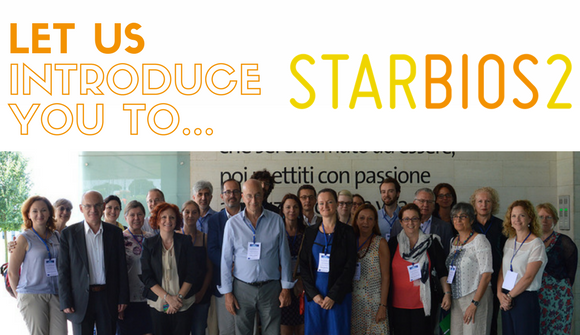Vittorio Colizzi, coordinator of STARBIOS2 project, is Full professor of General Pathology and Immunology, and Director of UNESCO Chair in Biotechnology and Bioethics at University of Rome “Tor Vergata”. He will talk about the aim of the project and the concept of Responsible Research and Innovation (RRI).
1. How would you describe the concept of Responsible Research and Innovation?
In short, RRI is an inclusive approach to research and innovation (R&I). It aims to better align both the process and outcomes of R&I with the values, needs and expectations of European society, and to ensure that societal actors work together during the whole research and innovation process.
2. Why is RRI important for the advancement of the research?
Research and innovation have never been carried out in isolation from the social, political and economic context. But the RRI helps us to highlight an important fact: one of the main risk, for European research is its inadequate connection with society.
The loose connection between research and society could make European research unable to address the key development problems, unable to exploit its potential for innovation and competitiveness in the global market, and socially isolated or contested (see the case of the attitude of many citizens towards the vaccinations).
For these reasons, RRI is important, because it focuses on the subject of a stronger R&I, and even more relevant with respect to society; a society of which R&I itself is an integral part.
3. Could you describe the 5 key issues that the RRI concept addresses?
STARBIOS2 is focused on 5 key issues of RRI (which now, at European level, includes also a more general one, about governance):
– Public engagement: promoting the engagement of all societal actors – including researchers, citizens, policy makers, business and industry – in the research and innovation process;
– Gender: favouring gender equality within research institutions, and favouring gender in research and innovation content;
– Education: enhancing the current education process so as to provide future researchers and other societal actors with new capacities for taking responsibility in R&I process, and attracting children and youth to maths, science and technology;
– Open Access: making research and innovation transparent and accessible;
– Ethics: making research and innovation able to respect fundamental rights and ethical standards, to be viewed not as a constraint, but as the main tool for ensuring high quality research results.

4. Why the focus on “structural change” in research institutions is important for STARBIOS2?
The focus on RRI “structural change” in research institutions is very important for STARBIOS2. This is the specific contribution of our project to the advancement of the RRI strategy. Through 6 “Action Plans” in 6 European research organisations in the field of Biosciences, we are trying to foster a deep change in their “structure”, activated by relevant players within these organisations.
We intend as “structure” the ways people are linked together and cooperate through rules, norms, values, symbols, culture, routines for the pursue of common objectives and organizational tasks.
In this way, we would like RRI to become a central and rooted element in the life of these research organisations, and not an episodic and peripheral element.
I think that every research institution has already carried out, or is carrying out, some RRI activities. For example, at the University of Tor Vergata, we have created, since 1998, within the Department of Biology, a UNESCO Interdisciplinary Chair in Biotechnology and Bioethics, which has put the typical skills of a university institution in serving the development of some African populations affected by serious health problems, such as AIDS and, more recently, Ebola.
But there are many other initiatives, both inside and outside our Department: the challenge is to know them, to enhance them, to make them part of a coherent and stable system over time.
Each STARBIOS2 Action Plan provides a set of actions regarding the 5 keys I mentioned, but differently, depending on the organisations. The implementation of these Action Plans will help to learn lessons useful to formalize a RRI model in the field of Biosciences.
5. Why did you choose to find international partners in addition to European partners?
We chose to include 3 international partners (from US, South Africa and Brazil) to give a global sense to this work. I think we have a lot to learn from the different ways in which the relationship between science and society is interpreted and actualized outside of Europe. This is why these partners will carry out some specific action plans, in the final phase of STARBIOS2. Conversely, I believe we can also provide a specific contribution to the reflection that is taking place around the world on these issues, within the scientific community.
6. As the project coordinator of STARBIOS2, what is your role in the project, in addition to developing an AP?
As a coordinator, our team of Tor Vergata deals not only with implementing an Action Plan, but also with ensuring a general coordinating function of the project, and promoting a common learning process, based on the various actions that STARBIOS2 is carrying out.
7. What is the goal you want to achieve at the end of the STARBIOS2 project in 2020?
I believe, and I hope, that the actions carried out under the STARBIOS2 framework will enable us to learn many things about how the stable introduction of RRI within the research institutions works concretely. I suppose that we will better understand the obstacles, opportunities, and the facilitating factors that can be encountered in this process, and we will try to formalize everything in a RRI model specifically adapted for Biosciences.









